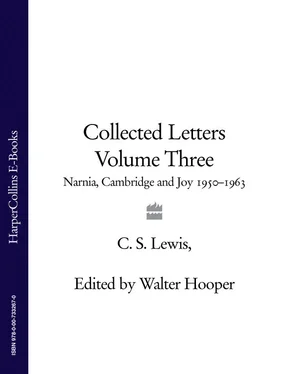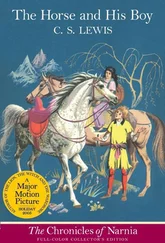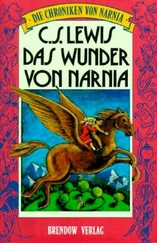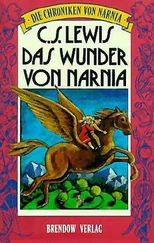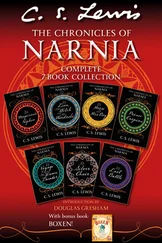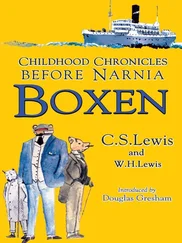A very happy new year to you both, and many thanks for your amusing letter of the 2nd. As you will observe, you were very nearly in time to call up on the old wave length, but not quite; my brother makes a clear sweep of all the old numbers every 31st December. I don’t know why, and I dare’nt ask him, in case he should insist on explaining it to me. He by the way asks to send greetings to both of you, and asks me to tell you that your thin blue summer suit is still going strong: and adds, that in view of the amount of summer we get in this country, he reckons on it figuring amongst the assets of his estate when the Landlord terminates his lease.
I doubt if there is a man in America besides yourself who would have seriously contemplated sending a private gift of coal to this country: I believe if I said ‘thanks very much, and while you are about it, make me a present of the ship that brings it’, you would do your best to comply! But I’m glad to be able to report that your prayers for mild weather have been answered; I got up this morning to find the thermometer standing at 52 in my unheated bedroom, in which the window had been wide open all night. Your weather is the sort I hate—or at least like least, for we should’nt hate even the weather. But I confess I don’t enjoy wet snow.
Talking of ships, the epic of the ‘Flying Enterprise’ has played even the Truman-Winston conference off the front page of our diminished dailies: and rightly so. 7 The American merchantile marine, and indeed the whole nation must be very proud of their Captain Carlsen. I wonder is a flair for journalism inborn in your people? You must have noticed how good are the reports from the commanders of the U.S.N. destroyers which have been standing by; no professional journalist could have done the thing better. A British naval officer in the same circumstances would be transmitting reports in what we call ‘Whitehall English’ which would make even the ‘Flying Enterprise’ story sound dull.
I like the name of your car; over here we are more aristocratic. My brother’s old Colonel has a car which has been raised to the Peerage under the title of Victor, Viscount Vauxhall, but he is called Vic for short; on the other hand he had an American friend in Shanghai whose car rejoiced in the name of ‘Puddlejumper’.
If you send a letter to Lieutenant-Colonel R. K. Wilson, Royal Artillery, c/o the War Office, Whitehall, London, S.W.I., it should reach him wherever he is, but of course if he is in Korea or some such place, it will take some time to reach him; it would be as well to endorse the envelope ‘Please Forward’ anyway. I’m sorry I can’t be more helpful, but our army is very scattered these days; I saw in the Sunday paper that at any given moment, we have ninety thousand trained troops on board ship, going to or coming from somewhere. As you say, what a muddle. Is this ghastly Korean war never going to end: or are we to spend the rest of our lives running round the Iron Curtain stopping leaks in it?
Yours ever.
C. S. Lewis 8
TO SISTER PENELOPE CSMV(BOD):
Magdalen etc.
10/1/52
Dear Sister Penelope
It was, as always, a great pleasure to hear from you. Hearty good wishes and prayers for the new year.
I was very intrigued by the Snow Men last time the story came up (about 15 years ago, was it?) but had hardly noticed its re-occurrence: certainly I am not well enough equipped to write to the Times. 9
I have, if not thought, yet imagined, a good deal about the other kinds of Men. My own idea was based on the old problem ‘Who was Cain’s wife?’ If we follow Scripture it wd. seem that she must have been no daughter of Adam’s. I pictured the True Men descending from Seth, then meeting Cain’s not perfectly human descendants (in Genesis vi. 1-4, where I agree with you), interbreeding and thus producing the wicked Antediluvians. 10
Oddly enough I, like you, had pictured Adam as being, physically, the son of two anthropoids, on whom, after birth, God worked the miracle which made him Man: said, in fact, ‘Come out—and forget thine own people and thy father’s house’ 11 –the Call of Abraham wd. be a far smaller instance of the same sort of thing, and regeneration in each one of us wd. be an instance too, tho’ not a smaller one. That all seems to me to fit in both historically and spiritually.
I don’t quite feel we shd. gain anything by the doctrine that Adam was a hermaphrodite. As for the (rudimentary) presence in each sex of organs proper to the other, does that not occur in other mammals as well as in humans? Surely pseudo-organs of lactation are externally visible in the male dog? If so there wd. be no more ground for making men (I mean, humans) hermaphroditic than any other mammal. (By the way, what an inconvenience it is in English to have the same word for Homo and Vir). 12 No doubt these rudimentary organs have a spiritual significance: there ought spiritually to be a man in every woman and a woman in every man. And how horrid the ones who haven’t got it are: I can’t bear a ‘man’s man’ or a ‘woman’s woman’.
I haven’t read any of the books you mention except Farrer’s Glass of Vision (if that is the Bamptons) 13 which I found v. good. 14 Have you read Simone Weil’s Waiting on God? 15 Erroneous in many ways, but I have rather fallen in love with it. The fragment at the end, about the sons of Noah, wd. interest you especially.
I will order They Shall be My People 16 and look forward to it. Congratulations. For my own part, I have been given a year’s leave from all teaching duties to enable me to finish my book on XVIth century literature, so I am plugging away at that as hard as I can. My hope is to kill some popular mythology about that fabulous monster called ‘the Renaissance’. There are five fairy tales already written, of which the second has now appeared.
‘lane’ died almost a year ago, after a long but, thank God, painless illness. I beg you will often pray for her. She was an unbeliever and, in later years, very jealous, exacting, and irascible, but always tender to the poor and to animals.
Your hand is better than mine (to read, I mean—it may hurt more).
Yes, oremus, oremus .
Yours very sincerely.
C. S. Lewis
TO I. O. EVANS (W):
Magdalen etc
10/1/52
Dear Evans–
Thanks for the play, 17 and for the other chap’s stories. 18 I liked the play very much. You made the astrology of the Magi v. convincing and Simeon was quite a character. I hope the performance pleased you?
As for the stories—the author writes a great deal better than most of the ‘science fiction’ lot, and is pretty learned. But oh, if only he didn’t try to be comic! The Norse story 19 was far the best, for in its atmosphere rough horse-play did no harm. But the attempts at humour in the other two ruined them for me. I can’t bear Britomart getting drunk and maudlin. In Ariosto’s world there is, of course, plenty of comedy: but not of the kind this author puts in! Perhaps I expected too much. With all good wishes for the new year.
Yours
C. S. Lewis
TO HARRY BIAMIRES (BOD):
Magdalen.
19/1/52
Dear Blamires (I wish you’d call me Lewis instead of Dr. Lewis)
I have read through the revised passages. 20 They all seem to me v. sound now. A few minor points remain: p. 1. animal kind . Just a slight danger of anbiguity between kind = sort (i.e. are animalic) and kind = species (animal-kind or mankind). P. 24. para 3 especially brutal . I’d prefer cruel. Brutal is unfortunate because the use of brutal to mean cruel is itself an instance of the same figure that leads to inhuman meaning cruel. P. 72 End of footnote. Wd. common dependence be better than communal . The latter might mean that we don’t have in common a personal dependence but only a corporate dependence. P. 73 para 2. I’m not quite happy about ‘authority of service’. P. 74. Isn’t the quotation ‘come full circle’ not gone . (I haven’t looked this up).
Читать дальше
